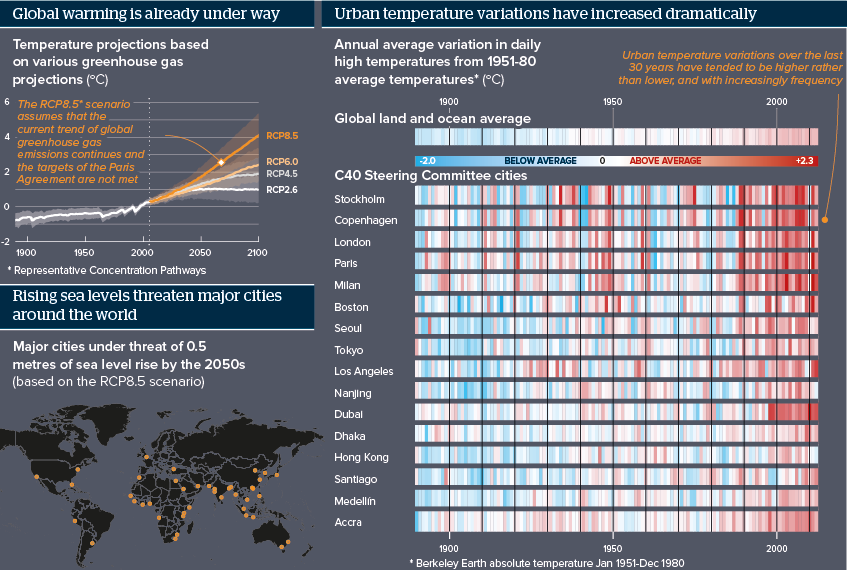Cities are at the forefront of global warming threats
As cities become hotter, the threats they face are rapidly increasing, particularly for those near the coasts
Source: Berkeley Earth (www.berkeleyearth.org); National Centre for Atmospheric Science, Reading; C40 Cities; Oxford Analytica
Outlook
As national governments continue to drag their feet on climate change, sub-national administrations and private sector actors increasingly are taking the initiative. With cities warming faster than the global average, city networks such as C40 will become increasingly important in driving cities, and helping countries, to meet climate targets.
Shared research, planning advice and technical assistance will also be invaluable in mitigating the worst impacts of global warming upon urban centres. Coastal cities in particular face major threats; investment in water defences and increased consideration of flood risks in city planning will ease but not avert climate challenges.
Impacts
- Coastal threats will increase to varying extents depending on whether the Paris Agreement’s 1.5-degree temperature rise limit is met.
- Rising seas and extreme weather will make some areas uninhabitable; others will suffer service interruptions and increased disease risks.
- Poor communities will be disproportionately affected in many cities, with informal settlements at particular risk of extreme weather.
- Population relocations will drive social tensions in many areas, while more frequent humanitarian crises will strain NGOs and aid budgets.
See also
- Report to boost climate action calls globally - Aug 27, 2021
- Pandemic will not stop international climate action - Nov 4, 2020
- Pandemic will weigh on green bond issuance this year - Aug 24, 2020
- Oceans may be key in global climate struggle - Oct 11, 2019
- Climate change GDP risk is high regardless of income - Sep 5, 2019
- More graphic analysis
